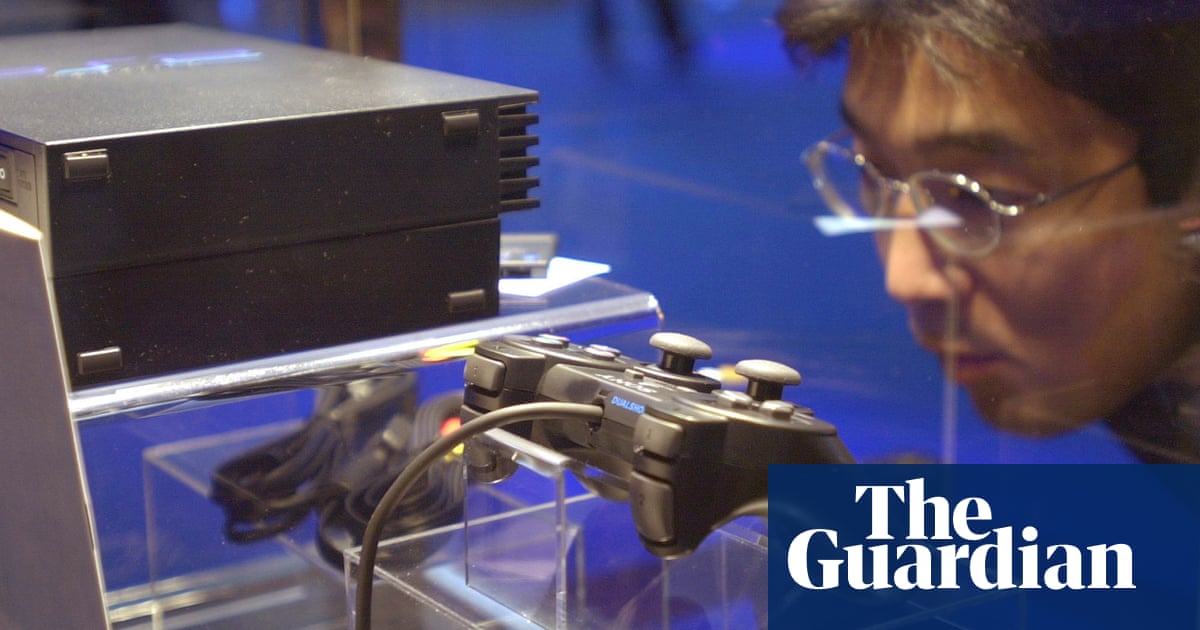
t feels as if Kyran Bracken is lacing his boots once more. He has a fresh purpose, a vital role as his sport prepares for the most critical challenge in its history. Rugby union is in chaos, its governors turning this way and that against the shadowy threat of brain injury, its players, past and present, unsure whether to be afraid or angry, cautious or belligerent.
Amid the chaos, it is the scrum-half’s role to navigate and communicate, the constant link between players of diverse types and mindsets. Bracken was one of the best. Now he finds himself at the heart of the current crisis, thrust forward as a spokesman for his generation, the first to pursue careers in full-time rugby union.
Last month he was invited to appear before the digital, culture, media and sport select committee’s review of concussion in sport to speak for rugby players everywhere. Next month, as a member of Progressive Rugby, the recently established lobbying group, he will meet Bill Beaumont and World Rugby. Bill Sweeney at the Rugby Football Union is in touch.
Bracken does not intend to join the legal case against these bodies that some peers of his have launched after their recent diagnoses of dementia. That in itself is an acute dilemma. “I’m having my own concerns,” he says. “I don’t want to be suing anyone. Then again, if I’m in a home in 10 years I don’t want to have to sell my house to pay for it.”
In front of the DCMS committee, Bracken became the second member of England’s World Cup-winning squad of 2003, after Steve Thompson, to place his symptoms on the public record. There are others. “I’ve since had texts from a few rugby players I never thought would have similar symptoms.”
This repeats a common theme – the seeming disconnect between the bold, invincible heroes of yore and the haunted vulnerability of scores of them as they harbour unnerving symptoms. Even in their pomp some might be struggling. Bracken describes the very sudden onset of anxiety, and thence obsessive-compulsive disorder, that plagued the latter years of his career. He still takes medication for the former.
He and I go back nearly 30 years. In the autumn of 1991, he was a second-year law student at the University of Bristol, the captain and star of the first XV. If any of the new faces scrapping for places in the seconds and thirds were ever caught lingering on the fringes at training he was the first to come over to welcome us, a bridge-builder back then. Anxiety could not have seemed further away.
That started for him 10 years later, a few months short of his 30th birthday, when he was captain of the England tour of North America. His symptoms were sudden and physical, as if a switch had been flicked. “You know if someone comes round a corner at you and shouts: ‘Boo!’ you’d get that rush of adrenaline?” he says. “That was happening to me on a minute‑by‑minute basis. And I couldn’t stop it. You feel it in your veins, you feel it in your breath, around your body. I’d always been mentally strong, and I still was. I wasn’t worrying about anything in my mind. This was physical.”
He has been concussed many times in his career. Earlier that year, he was knocked out “a few times” and never felt quite right. Soon, the mental symptoms followed the physical.
A common form of OCD is known as rumination, the preoccupation with certain ideas that cannot be shaken off. For Bracken it started with the notion that a good night’s sleep was essential to his functioning as a player. That meant he needed an empty bladder. But each time he wasn’t quite sure he had emptied it totally. Before long, he was going to the toilet dozens of times a night. Which meant he wasn’t sleeping. And so the cycle continued, seeping into his daytime too.
“I was sitting in England team meetings thinking I need the toilet. I had to say to myself: ‘Get your head on, kid! You’re about to play Joost van der Westhuizen, and you’re thinking about the toilet …’”
Bracken never had the terrible lows so many endure at the end of a career in sport. Within a few months of retirement, he had taken to lacing ice skates. In 2007 he won the second series of Dancing On Ice. Skating became a new mini-career for him, which alongside a number of business interests kept him constantly engaged.
But it took him about 10 years to overcome his OCD and the anxiety symptoms still lurk. When he tried to come off his medication a few years ago, they returned with a vengeance. More recently, further symptoms have developed, little gaps in his memory where names and numbers should be – and, indeed, entire events.
When we spoke he had just come off a call with his mentor, our coach from university, Bob Reeves, a former president of the RFU. They had been discussing how the game might become safer. How they might make it so.
“He was telling me about when I got knocked out and he took me to hospital. I have no recollection of it at all. He said: ‘But that’s not possible.’ ‘Bob, honest to God, I cannot remember.’”
Bracken had gone to the Rugby Players Association about his concerns before news of the current legal case broke. On one occasion he could not get into his home. “There’s a three-digit code. I’d used it for a year and a half. I couldn’t remember it.”
These are troubling little incidents, sitting in that hinterland between “something” and “nothing”. So he cannot remember an event 30 years ago, just after he had been knocked out. So he forgot the code to his front door. So he forgets names of colleagues, family, friends. Could be something, might be nothing. This is the agony so many former rugby players are enduring as they hurtle towards and through middle age.
Bracken is seeking the opinion of a neurologist, independent from the one who diagnosed the players in the lawsuit. Like so many, he just wants to know – insofar as anything can be known. The symptoms of the disease chronic traumatic encephalopathy (CTE), the prime suspect for those with a history of repeated blows to the head, are diffuse and nonspecific, most of them shared with other conditions. And CTE cannot yet be diagnosed definitively until the brain is dissected postmortem.
“Who knows, at the age of 30 I might have had these symptoms had I been a lawyer in the City with all the stress. The only thing is, statistically, if there are literally hundreds of us struggling after rugby …”
Bracken finds himself in the same position as so many, caught between a profound love for the sport that has given him so much and a creeping realisation of what it might have taken away. Who is to blame for that? Is anyone? And, most important, who is going to look after those who need it in the years to come?
He still has ties to the sport. He coaches locally in St Albans. His eldest son is in the England system, his middle son the Saracens academy, his youngest as promising as either of them.
For now he has aligned himself with Progressive Rugby. It is in this capacity that he wants to sit down with the game’s governors, without the shadow of a lawsuit, and discuss what can be done, to make the sport safer and to protect the future of those who may develop neurodegenerative conditions and the future of their families. In the UK, anyone requiring care must fund it themselves unless and until their savings fall below £23,250.
He has ideas about how the game might be modified, coming round to a new idea gaining traction – that the jackal is at the heart of many of rugby’s health problems. “When we first started out, there was no jackal.” As rucks have proliferated, so have grappling hands after the tackle. From that development stem many of rugby’s health risks, including the phenomenon of a 14-man defensive wall.
But the priority is to make it harder for players to carry on when they have taken a knock to the head. The first feature I ever wrote was on Bracken – for the student paper before the 1994 Five Nations. He had left Bristol in 1993, after losing an exhilarating university final at Twickenham to Loughborough, courtesy of a pushover try by Tony Diprose in the last minute of extra time. A few months later, Bracken was making his England debut on the same pitch, in front of a rather bigger crowd.
He was quite the hero that day, playing on after Jamie Joseph had stamped on his ankle. Not only was this his debut, it was the All Blacks. As the medics tended to him, he could see his great rival even then, Matt Dawson, warming up on the touchline. He might not have known England were about to win against the odds, that within 48 hours he would be sitting on the Big Breakfast sofa with Gaby Roslin and a pair of crutches, a national hero, his career launched – but he would have known the stakes were high.
I read to him what he told me for that article in 1994: “I thought I was off, but there was no way I was going to leave the pitch and ruin all the work I’d done to get there in the first place.” Imagine if the 22‑year‑old Kyran Bracken had been dizzy from a brain injury instead, imagine if no one else had noticed it.
He smiles. “Would I have declared myself? ‘I’m feeling a bit faint. I can’t see.’ I’ll be honest, probably not. I didn’t at other times. And there lies the problem. It’s a mindset. There’s a gladiatorial role that all players have to take on just to be on the pitch. But head injury is the silent killer because they don’t know whether they have it or what the repercussions might be. So they need to be educated about what it could mean in the future. You might not be able to hold down a job, you might not be safe for your kids to be around, you could suffer mood swings, you could get lost and not know where you are, you could feel suicidal …”
He trails off for a second, before resuming with that energy of his. “Just fucking don’t take the risk. Until players understand the risk, they won’t change. And the only people who can get that across are not professors, they’re ex-players.”
Kyran Bracken has a new purpose, all right. It could well prove his most important.












